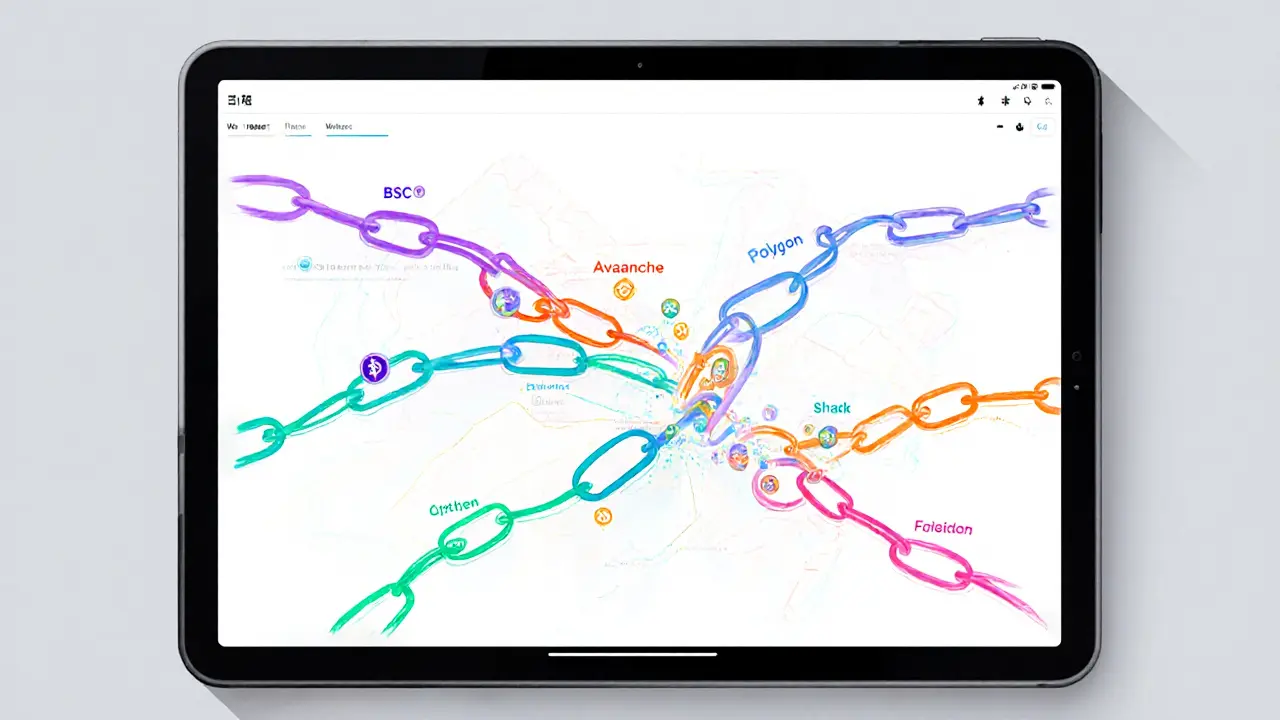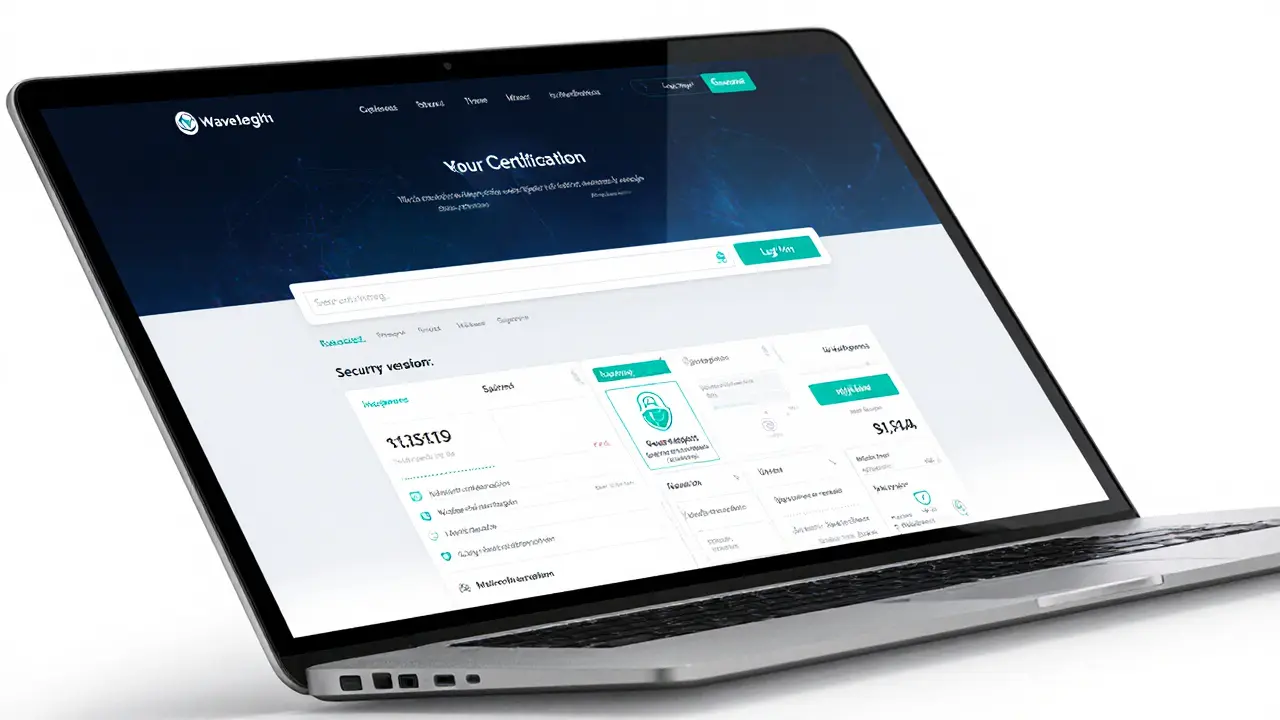Mandala Exchange Review 2025: Fees, Security, and Multi‑Chain Trading

Mandala Exchange Fee Calculator
Mandala Exchange is a crypto‑to‑crypto exchange launched in 2020 and operated by Mandala Acquisition LLC. It markets itself as the first privately owned platform built on Binance Cloud, promising deep liquidity, low fees, and cross‑chain trading without bridge costs.
What Sets Mandala Exchange Apart?
Most traders know the big players - Binance, Coinbase, Kraken - but Mandala tries to carve a niche by leveraging Binance Cloud’s infrastructure. That means you get access to one of the world’s largest liquidity pools while the exchange itself stays lightweight. The platform also supports more than 100 cryptocurrencies across several blockchains (BSC, Polygon, Solana, Avalanche, and Fantom), so you can move assets without paying extra bridge fees.
Liquidity and Binance Cloud Integration
When an exchange taps into Binance Cloud, it essentially rents Binance’s order‑book depth and matching engine. In practice this translates to tighter spreads and faster fills, especially for less‑liquid altcoins. According to a 2023 Slashdot report, Mandala’s daily trading volume exceeded $100 million, a respectable figure for a mid‑size platform. While that’s a fraction of Binance’s $30 billion‑plus daily volume, it still beats many regional exchanges that struggle to hit $10 million.
Fee Structure - How Much Do You Pay?
Fees are often the deal‑breaker for active traders. Mandala advertises a maker fee of 0.025 % and a taker fee of 0.075 %. Compared with industry averages, that’s considerably cheaper. Below is a quick look at how Mandala stacks up against Binance and Coinbase.
| Exchange | Maker fee | Taker fee |
|---|---|---|
| Mandala Exchange | 0.025 % | 0.075 % |
| Binance (standard tier) | 0.01 % | 0.10 % |
| Coinbase Pro | 0.00 % - 0.50 % | 0.04 % - 0.50 % |
If you hold the native MDX token, you can earn additional rebates, but even without it Mandala’s base fees are lower than Coinbase’s typical 0.4 % taker rate.
Security Measures & Custody
Security is a top concern, especially after several high‑profile exchange hacks. Mandala inherits Binance Cloud’s security stack, which includes multi‑signature cold wallets, withdrawal whitelisting, and access to Binance’s SAFU (Secure Asset Fund for Users). The platform offers custodial wallets on desktop, iOS, and Android. Notably, you can deposit crypto without immediate KYC, and withdrawals up to two BTC per day are allowed without identity verification - a convenience for privacy‑focused users.
However, independent audits of Mandala’s security claims are scarce. While Binance’s infrastructure is reputable, the lack of third‑party attestations means you’re largely trusting the exchange’s self‑reporting.

Asset Coverage & Multi‑Chain Support
Mandala lists more than 100 trading pairs, including the big names (Bitcoin, Ethereum, Tether, Binance Coin) and newer projects like Fantom, Polkadot, Cardano, and Chainlink. The platform’s multi‑chain architecture lets you trade directly on BSC, Polygon, Solana, Avalanche, and Fantom without using external bridges. For traders who hop between chains frequently, this saves both time and gas fees.
Fiat On‑Ramp Options
Unlike Binance or Kraken, Mandala does not provide native bank transfers. The only fiat entry point is through Indacoin, a third‑party service based in London that lets users buy MDX tokens with Visa or Mastercard. This limits the exchange’s appeal to newcomers who prefer a seamless fiat‑to‑crypto experience.
User Experience - Interface and Support
Reviews are split. Some users praise the clean, high‑speed interface and say the platform feels “desktop‑grade” even on mobile. Others describe the layout as “a maze,” especially when navigating the multi‑chain tabs. Customer support claims 24/7 live chat, but anecdotal feedback on Reddit and Wikibit points to delayed responses - sometimes taking hours to resolve withdrawal issues.
Regulatory Standing
Mandala’s jurisdiction is murky. Sources list the Seychelles, Malta, or even a generic “global” registration. It is not licensed in the United States, the European Union, or Singapore, meaning it cannot serve roughly 40 % of global crypto trading volume. This regulatory gray area may deter institutional users and adds uncertainty for retail traders worried about potential shutdowns.
Pros and Cons - Quick Reference
- Pros
- Low maker/taker fees
- Access to Binance Cloud liquidity
- Multi‑chain trading without bridge fees
- Partial KYC‑free deposits and withdrawals
- MDX token rebates
- Cons
- No native fiat bank transfers; limited to Indacoin card purchases
- Unavailable to US residents and many EU countries
- Unclear regulatory status; no third‑party security audit
- Mixed user feedback on UI and support speed
- Relatively small user base and limited community resources
Who Should Consider Mandala Exchange?
If you already hold crypto, trade across several blockchains, and value low fees, Mandala can be a handy secondary venue. Its multi‑chain setup shines for arbitrage or swapping assets that would otherwise require expensive bridges. Beginners who need a simple fiat on‑ramp, and anyone residing in the US or heavily regulated jurisdictions, will likely look elsewhere.
Final Verdict
Mandala Exchange offers a solid set of features for an intermediate trader: competitive fees, Binance Cloud liquidity, and true cross‑chain capability. The main drawbacks are regulatory uncertainty, a lack of native fiat options, and uneven support experiences. Treat it as a complementary platform rather than your sole exchange, especially if you need reliable fiat access or operate in a regulated market.
Frequently Asked Questions
Is Mandala Exchange safe to use?
Mandala leverages Binance Cloud’s security infrastructure, which includes multi‑signature cold wallets and SAFU protection. However, the exchange lacks independent third‑party audits, so while the technical backbone is solid, there is still some risk due to its unregulated status.
Can I buy crypto with a bank transfer on Mandala?
No. The platform only supports fiat purchases through Indacoin, which accepts Visa and Mastercard. Direct bank transfers are not offered.
What is the MDX token and why does it matter?
MDX is Mandala’s native utility token. Holding MDX can earn you trading fee rebates, access to promotional giveaways, and sometimes lower withdrawal limits. It’s optional but can reduce your overall cost if you trade frequently.
Is Mandala available in the United States?
No. Mandala does not serve US residents due to regulatory constraints, which excludes a large portion of global trading volume.
How do I start trading on Mandala without KYC?
Create an account with just a name, email, and password, then deposit any cryptocurrency you already own. No KYC is required for deposits, though larger withdrawals may trigger verification.


Nisha Sharmal
October 25, 2025 AT 08:15Sure, because the Indian crypto scene needs another “cut‑price” exchange that pretends to be revolutionary. Mandala’s fees look good only on paper.
Karla Alcantara
October 25, 2025 AT 22:08I like that Mandala offers sub‑$0.1 taker fees and a decent range of tokens. For traders who already hold crypto, it can be a handy secondary venue. Just keep an eye on the fiat onboarding limits.
Jessica Smith
October 26, 2025 AT 11:02Mandala copies Binance's engine, so it’s not groundbreaking.
Petrina Baldwin
October 27, 2025 AT 00:55Multi‑chain without bridges sounds nice.
Ralph Nicolay
October 27, 2025 AT 14:48From a formal standpoint, the platform’s fee schedule is competitive when benchmarked against industry averages. Moreover, the integration with Binance Cloud theoretically affords deeper order‑book depth, which may translate to tighter spreads for less liquid pairs. Nevertheless, the absence of a third‑party security audit introduces an element of uncertainty that prudent investors should consider.
sundar M
October 28, 2025 AT 04:42Wow, the idea of swapping across BSC, Polygon, and Solana without paying bridge fees feels like stepping into the future! 🎉 I’ve tested the UI on my phone and it’s surprisingly snappy, even when the market’s jittery. The MDX rebate program adds a little sparkle for power traders. Still, the limited fiat gateway might push newcomers elsewhere. All in all, a solid side‑kick for seasoned crypto‑wranglers.
Nick Carey
October 28, 2025 AT 18:35Low fees are nice, but the support is kinda slow. Might be okay if you’re not in a hurry.
Sonu Singh
October 29, 2025 AT 08:28Mandala’s interface is decent, but I noticed a few bugs when switching chains – like the balence not updating right away. Also, the docs could use some clarifcation on the MDX rebate thresholds. Overall, it works, just be ready for minor hiccups.
Peter Schwalm
October 29, 2025 AT 22:22For those looking to diversify across multiple ecosystems, Mandala’s cross‑chain order‑book is a real plus. The fee rebates for MDX holders can shave a few basis points off active trading. Just remember to verify withdrawal limits if you plan large moves.
Alex Horville
October 30, 2025 AT 12:15Mandala isn’t a US‑friendly platform, period.
Marianne Sivertsen
October 31, 2025 AT 02:08The philosophical side of crypto is about trust, and Mandala’s lack of an external audit raises questions. Still, many users find the liquidity benefits outweigh the regulatory haze. It’s a personal risk‑vs‑reward calculation.
Shruti rana Rana
October 31, 2025 AT 16:02From a formal perspective, the multi‑chain architecture is impressive 😊. However, the absence of a regulated fiat on‑ramp may deter newcomers. The platform’s design feels polished, yet the support response times could improve.
Stephanie Alya
November 1, 2025 AT 05:55Great, another token you need to hold to get rebates 🤦♀️.
Manish Gupta
November 1, 2025 AT 14:15Holding MDX does lower your taker fees, which can add up if you trade daily. The rebate schedule is tiered, so the more you hold, the bigger the discount. It’s a modest incentive compared to the platform’s overall fee structure.
Gabrielle Loeser
November 1, 2025 AT 22:35Indeed, if you already have MDX in your wallet, it’s a simple way to shave off a few percent on each trade. Just be mindful of the token’s own market volatility before allocating large amounts solely for rebates.
Cyndy Mcquiston
November 2, 2025 AT 06:55Fees look cheap but the lack of audit scares me.
Abby Gonzales Hoffman
November 2, 2025 AT 15:15True, the audit gap is a red flag, but the liquidity is solid and the fee rebates can be worthwhile for high‑volume traders.
Rampraveen Rani
November 2, 2025 AT 23:35Liquidity from Binance Cloud is impressive 😎.
ashish ramani
November 3, 2025 AT 07:55Indeed, leveraging that depth can reduce slippage on larger orders.
Natasha Nelson
November 3, 2025 AT 16:15Support can be hit‑or‑miss, but the UI does improve over time.
Richard Williams
November 4, 2025 AT 00:35Agreed, patience with support usually pays off when you stay polite and provide all necessary details.
Prabhleen Bhatti
November 4, 2025 AT 08:55First off, let’s acknowledge that Mandala’s fee tier (0.025 % maker, 0.075 % taker) is indeed competitive when juxtaposed against the broader exchange ecosystem; however, the nuance lies in the tokenomics of the native MDX utility token, which introduces a variable rebate structure contingent upon staking thresholds-a mechanism that can marginally erode the apparent advantage for low‑volume traders.
From a liquidity standpoint, the integration with Binance Cloud furnishes a deep order‑book, granting sub‑second fill times for most mid‑cap assets, yet it is crucial to recognize that this reliance on a third‑party matching engine imposes an indirect risk vector; any systemic disruption within Binance’s infrastructure could propagate downstream to Mandala’s platform.
Security-wise, Mandala inherits the multi‑signature cold‑wallet architecture and SAFU fund protection that Binance touts, but the conspicuous absence of independent third‑party audits leaves a verification gap that sophisticated custodians might find unacceptable.
Regulatory ambiguity compounds the risk profile: the exchange’s domicile appears nebulous-ranging between the Seychelles, Malta, and an unnamed “global” registration-thereby precluding compliance with AML/KYC norms in major jurisdictions such as the U.S., EU, and Singapore, which could lead to forced account closures should enforcement actions arise.
On the user‑experience front, the cross‑chain trading interface eliminates the need for external bridges, effectively reducing gas costs on BSC, Polygon, Solana, Avalanche, and Fantom, an advantage that resonates strongly with arbitrageurs and multi‑chain DeFi enthusiasts.
Nevertheless, the platform’s fiat on‑ramp is limited to Indacoin’s card‑based purchase pathway, excluding direct bank transfers-a drawback for onboarding newcomers who lack crypto holdings.
Customer support responsiveness is reported as mixed; while 24/7 live chat is advertised, anecdotal evidence suggests latency in withdrawal assistance, potentially impacting liquidity management for time‑sensitive traders.
In synthesis, Mandala positions itself as a low‑fee, high‑liquidity, multi‑chain gateway, yet its regulatory opacity, limited fiat infrastructure, and reliance on Binance Cloud’s underlying technology constitute substantive considerations for risk‑averse participants.
Pros: low fees, Binance Cloud liquidity, seamless cross‑chain swaps, optional MDX rebates.
Cons: regulatory uncertainty, lack of independent security audit, restricted fiat options, variable support quality.
Bottom line: treat Mandala as a complementary venue for seasoned traders seeking cost efficiencies across chains, but refrain from consolidating primary assets here unless you’ve conducted thorough due diligence on the regulatory landscape and are comfortable with the inherent third‑party dependencies.